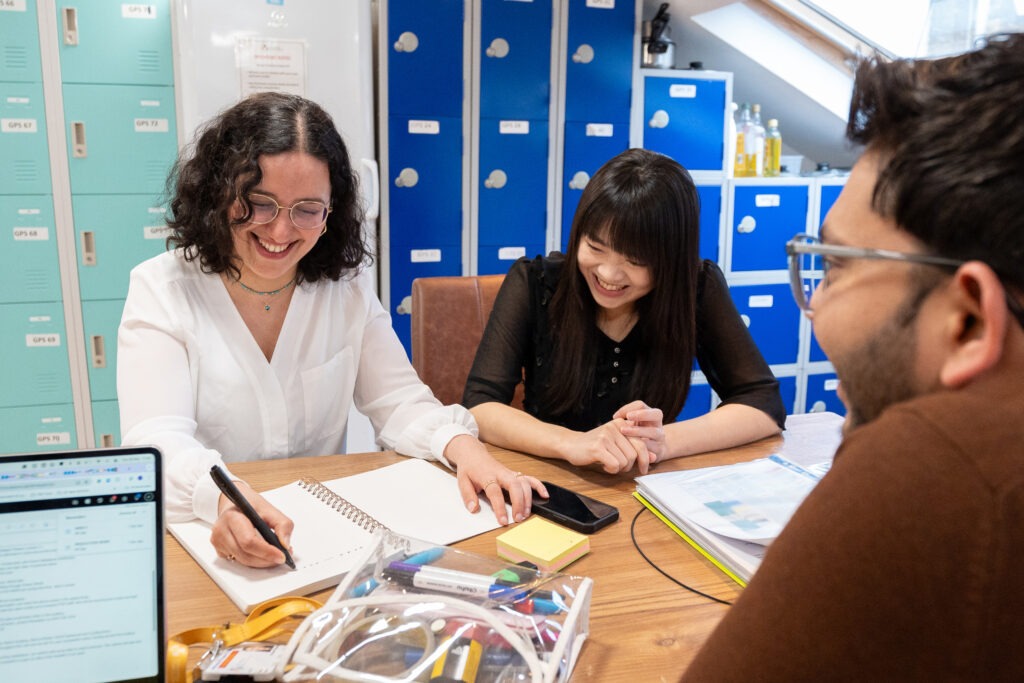The city of London is a place that’s bursting with opportunity, with a rich and diverse culture, home to some of the world’s most iconic landmarks. Being a student in London, there are lots of benefits to enjoy, from the job opportunities available after graduation to having access to free healthcare and the excellent public transport that makes traveling a lot more efficient and affordable. Here are a few things to keep in mind and to be aware of to help you stay safe, manage your finances and time well and ultimately navigate living in London the right way.
This guide will be highlight some key factors to be mindful of during your studies here and an understanding of what to expect and look forward to in your time as a student in London.

Cost of Living and How it Affects you as a Student:
The cost of living is the expense of maintaining a standard of living – accommodation, food, travel and other living expense. London has been cited as one of the most expensive cities in the world and the rising costs of living in the big metropolitan can affect you as a student.
A report by the House of Commons highlights the financial pressures that students are facing, with increases in the prices of food, energy bills, transport and other living expenses. Some students have had to work long hours and in turn found themselves struggling with their university demands, which can impact their grades and mental health.
Advice that can really help you avoid being in this situation would be to learn how to manage your finances, this can be done through:

Creating a budget
Managing your finances beings with creating a budget that will help you prioritise the essential costs which can reduces financial stress and in turn help you to build lifelong money management skills.
Firstly, track your weekly expenses against your weekly budget and assigning a portion of your income/budget for the absolute essentials such as rent, weekly food shopping and transport. To help make budgeting easier there are several apps and budgeting spreadsheets that can do the work for you in helping you track your expenses and even assist in showing you areas where spending can be reduced.
Learning how to budget is not about restricting yourself from spending however you’d like but rather it’s a tool that reaps more long-term benefits such as gaining rich knowledge in financial responsibility and adopting good money saving skills. Trust me, your future self will thank you.

Utilise student discounts
As a student, you’re at a great advantage to get discounts off hundreds of stores, restaurants and entertainment spots around London that make spending money on the “luxuries” a little lighter for your pockets.
To sign up for student discounts using apps such as UNiDAYS and Student Beans – all you need is to register with your university email. For in person discounts, you need to present your student ID in store.

Use affordable modes of public transport:
The most affordable modes of transport for a student would be taking the London buses, the Overground trains and Underground tubes as well as cycling to name a few. Also apply for an 18+ Oyster card or 16-25 Rail card so you can travel around London and the UK at a discounted rates – this saves more money in the long run.

Social Life in London and Staying Safe:
London is a social hub for students offering a such a wide range of activities, cultural markets and events and seasonal festivities. It’s also a great place to grow your network by attending career fairs and networking sessions which is useful when thinking ahead to post-graduate careers.
As a student it’s common to deal with loneliness, you may find it hard being away from home and in a city and area you are unfamiliar with, especially if you’re an international student, as not only are you away from your friends and family but your also miles from your home country.

One way you can combat loneliness is by taking the time to get to know the people you’ll be spending most of your time with; this could be your flatmates/roommates or people on your course, even though it may seem daunting at first, breaking the ice with these individuals does help to make your university experience better as its helps build a small community of friendly faces around you that can be a comfort in times of loneliness.
In addition, joining a society is another way to find friends as a shared interest in a particular hobby or topic is already something that brings you together. For students who have an interest in visiting cities around the UK or looking to make new friends while exploring, do check out the Travel Club. There are discounted trips to various destinations around the UK and is a programme that is used to further promote global friendship and global understanding. You can find out more on the website.

Staying safe whilst traveling around London
London is a mostly safe city however; it is important to be alert when going out especially when you are walking around the city to avoid your items becoming lost or stolen, especially in tourist areas. Avoid walking around main roads or in large busy areas with your phone out as it can be snatched from your hands by motorcycle thieves. When coming home after dark, it’s safer to walk in a well-lit area and completely avoid alleyways and shortcuts to stay out of any potential danger. If you can, walk with someone else as there is safety in numbers.
Balancing academics and mental wellbeing balance
Making your mental health a priority is just as important as keeping up with your academics. If your mind is not taken care of well, the whole body feels the effect.

Create a timetable to help balance your time
This could look like dedicating 2-3 hours every weekday to extra readings, revision or assignments. After those few hours make sure to put all study materials away to focus on downtime and spending time with friends or you could choose to dedicate your weekends to exploring or growing a new skill that’s for personal pleasure and not university related.
Learning to prioritise your time through by making a timetable not only helps with organisation but always leaves room for rest everyday so you can avoid being burnout.
Getting off social media and into nature
Every now and then, it’s so benefiting to go on walks outside of your accommodation building, or to a local park and just take in all of nature’s fresh air, alone or with a friend. Committing to this routine weekly helps in clearing your thoughts, by putting things in a better perspective and preparing your mind for the week ahead. Implementing breathing exercises in your walks also help in balancing your mind.

Seek Support
There are some moments when your mental health takes a deeper toll than you can handle by yourself and that’s completely normal and a part of life.
Choosing to seek relevant support and advice in these moments is an immense help for keeping a balanced mind. Utilising the resources available for you as a student whether it’s through counselling, wellbeing apps or talking to a loved one helps you realise you are not alone in your struggle and can lead to solutions being found to best manage your mind in the healthiest way. Remember there are always people who are there to help and you don’t have to deal with stress or anxiety alone; you are never meant to.
Studying in London promises so many benefits but it’s also important to be aware of the drawbacks that may come with living in London as it is with any city you choose to study at. I hope this article helped you to understand how to best navigate living in London as a student, knowing what to expect and what to look forward to.

